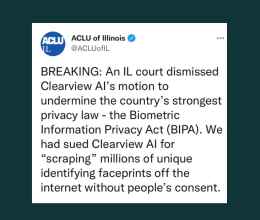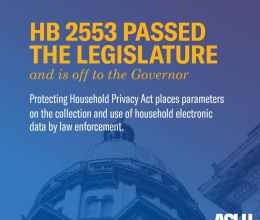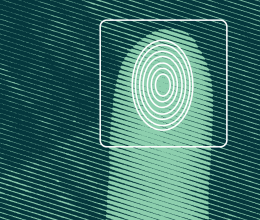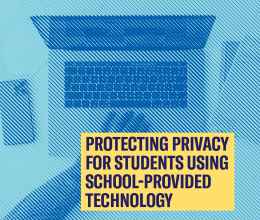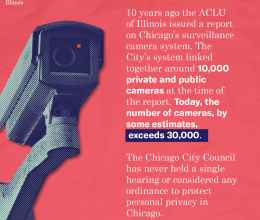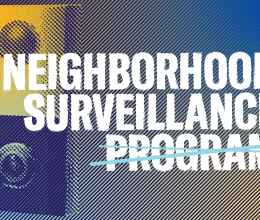
Cell site simulators that can conduct massive surveillance have been controversial
CHICAGO – The use of so-called Stingray devices, which simulate cell towers of service providers, would be subject to increased transparency and regulation when used by the police under a new bill introduced in Springfield. House Bill 4470 would create statewide regulations for the use of such technology, assuring that this technology does not become an unregulated tool for mass surveillance.
House Bill 4470 is being sponsored by Representative Ann Williams of Chicago. A similar measure is being introduced in the Illinois Senate under the sponsorship of Senator Daniel Biss.
“Stingrays act as a cell tower, tricking all cell phones in a particular area into thinking that they are a cell phone tower operated by a service provider,” said Representative Williams in announcing the legislation. “Once a phone connects to the tower, police can determine location information as well as the serial numbers of phones in that area.”
“Just this description makes clear how powerful this technology can be – and why it needs to be regulated,” added Representative Williams.
Devices such as Stingrays also can block calls from cell phones, drain the battery life of phones connected to the simulator, block 3G and 4G connections – slowing down service, employ malware in a connected phone and intercept the content of phone calls, web browsing and text messages.
“While devices such as Stingrays can have a legitimate law enforcement role in keeping us safe, we cannot permit the technology to be used in ways that might capture personal information about thousands of innocent persons across the State of Illinois,” said Senator Daniel Biss.
“This legislative effort is designed to respect those legitimate uses while protecting the privacy of all Illinois residents,” he added.
House Bill 4470, the Citizen Privacy Protection Act, would:
- Allow law enforcement to use cell site simulators for the narrow purpose of locating or identifying a particular communication device, after obtaining a court order based on probable cause.
- Require a court order to include a description of the nature and capabilities of the device, the manner and method of deployment, describe whether the device will capture data of non-target devices, and describe the procedures to be followed to protect the privacy of noon-targets, including the deletion of non-target data.
- Mandate that any data collected beyond the scope of the warrant must be immediately and permanently deleted.
Stingray technology and its use by police has been the subject of great debate and controversy in recent months. A federal court in Chicago recently permitted a lawsuit to move forward seeking additional information (under FOIA) about the use of Stingrays by the Chicago Police Department. Last November, another federal court in Illinois opined that Stingrays are “too powerful” to go unregulated. Four states currently require a warrant prior to law enforcement use of Stingrays. A warrant also is required pursuant to federal policy for use of Stingrays by the FBI or Homeland Security.
Chicago police and the Illinois State Police have acknowledged that they possess and have used the technology.
“This legislation is a strong step forward in protecting privacy for Illinois residents,” said Khadine Bennett, legislative counsel for the ACLU of Illinois. “We look forward to advancing the bill to the Governor’s desk for his signature.”
